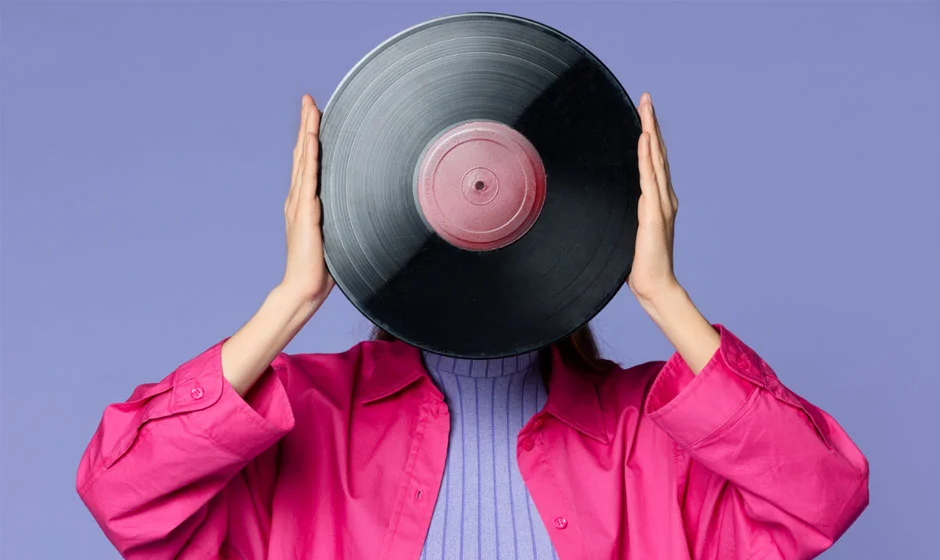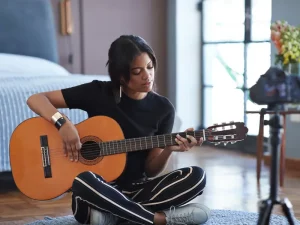- 25 July 2024
- 230
The Impact of Social Media on Music Promotion

Introduction
In the digital age, the landscape of music promotion has undergone a seismic shift. Traditional methods such as radio play, print media, and live performances, while still relevant, have been complemented and, in many cases, overtaken by the power of social media. Platforms like Facebook, Instagram, Twitter, and TikTok have revolutionized the way artists connect with their audience, making music promotion more accessible and dynamic than ever before. This article delves into the profound impact of social media on music promotion, exploring the myriad ways it has transformed the industry.
The Evolution of Music Promotion
Historically, music promotion was a labor-intensive process, heavily reliant on gatekeepers such as record labels, radio stations, and music journalists. Artists had limited channels to reach their audience, and breaking into the mainstream required significant financial and logistical support. The advent of the internet began to democratize this process, but it was the rise of social media that truly leveled the playing field.
The Power of Social Media Platforms

1. Facebook
Facebook remains one of the most versatile platforms for music promotion. With over 2.8 billion active users, it offers a vast audience base. Artists can create dedicated pages to share updates, post videos, and engage with fans through comments and messages. Live streaming features allow for real-time interaction, making virtual concerts and Q&A sessions possible. Additionally, Facebook Ads provide targeted marketing opportunities, enabling artists to reach specific demographics based on interests, location, and behavior.
2. Instagram
Instagram’s visual-centric approach makes it a powerful tool for music promotion. Artists can use posts, stories, and IGTV to share behind-the-scenes content, music videos, and promotional materials. The platform’s algorithm favors engagement, so consistent interaction with followers can significantly boost visibility. Features like Instagram Reels and the “Swipe Up” link in stories offer additional avenues for promoting new releases and driving traffic to streaming platforms.
3. Twitter
Twitter’s real-time nature makes it ideal for announcements and engaging in conversations with fans. Hashtags and trending topics can amplify an artist’s reach, while Twitter Spaces offer a new way to host live audio events. By participating in relevant discussions and retweeting fan content, artists can foster a sense of community and loyalty among their followers.
4. TikTok
TikTok has emerged as a game-changer in music promotion, particularly for younger audiences. The platform’s algorithm can propel songs to viral status, as users create and share short videos set to music. Challenges and trends often drive the popularity of tracks, leading to increased streams and downloads. TikTok’s integration with music streaming services also ensures that viral hits translate into tangible success for artists.
Strategies for Effective Music Promotion on Social Media
1. Content Consistency
Regular posting is crucial for maintaining audience engagement. Artists should develop a content calendar to ensure a steady stream of updates, including new music releases, tour dates, and personal milestones. Consistency helps keep the audience engaged and fosters a sense of anticipation for upcoming projects.
2. Authenticity and Engagement
Authenticity resonates with audiences. Artists should strive to present a genuine version of themselves, sharing personal stories and insights into their creative process. Engaging with fans through comments, direct messages, and live sessions can build a loyal community and humanize the artist.
3. Collaborations and Features
Collaborating with other artists, influencers, and content creators can expand an artist’s reach. Features on popular tracks, joint live sessions, and shout-outs can introduce an artist to new audiences and create buzz around their work.
4. Utilizing Analytics
Social media platforms offer robust analytics tools that provide insights into audience demographics, engagement rates, and content performance. Artists should regularly review these metrics to understand what works and tailor their strategies accordingly. Data-driven decisions can optimize promotional efforts and maximize impact.
5. Paid Advertising
While organic reach is valuable, paid advertising can significantly boost visibility. Platforms like Facebook and Instagram offer targeted ad options that allow artists to reach specific demographics. Sponsored posts, promoted tweets, and TikTok ads can drive traffic to streaming platforms, websites, and online stores.
Challenges and Considerations

While social media offers unparalleled opportunities for music promotion, it also presents challenges. The constant need for content creation can be overwhelming, and the pressure to maintain an online presence can detract from the creative process. Additionally, the algorithms that govern these platforms can be unpredictable, making it difficult to guarantee consistent visibility.
Artists must also navigate the potential pitfalls of online interactions, including negative comments and cyberbullying. Maintaining a healthy balance between online engagement and personal well-being is crucial.
The Future of Music Promotion
As social media continues to evolve, so too will the strategies for music promotion. Emerging technologies such as augmented reality (AR) and virtual reality (VR) offer exciting possibilities for immersive fan experiences. Live streaming will likely become more sophisticated, with better quality and interactive features.
Blockchain technology and non-fungible tokens (NFTs) are also poised to impact the music industry, offering new ways for artists to monetize their work and connect with fans. Social media platforms will undoubtedly integrate these technologies, providing artists with innovative tools for promotion and engagement.
Conclusion
The impact of social media on music promotion is undeniable. It has transformed the industry, offering artists unprecedented opportunities to reach and engage with global audiences. By leveraging the power of platforms like Facebook, Instagram, Twitter, and TikTok, artists can build their brand, foster a loyal fan base, and achieve success on their terms. While challenges remain, the future of music promotion is bright, driven by the ever-evolving landscape of social media.
In this dynamic environment, artists must stay adaptable, continually refining their strategies to harness the full potential of social media. The journey may be demanding, but the rewards are immense for those who navigate it with creativity, authenticity, and resilience.

